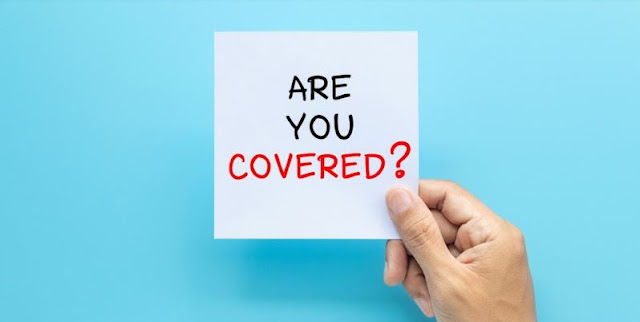
Starting a business can be an exciting venture but it’s never easy.
You have a lot on your plate—from the legalities of establishing your business to prepping your services and products to your marketing initiatives and attracting customers.

However, there’s another important step you need to take when establishing your business— insurance. While there are several types of commercial insurance out there, there is one type that every startup and small business should have—general liability insurance.
This article covers the basics of general liability insurance and some helpful tips to avoid mistakes when purchasing insurance.
What Is A General Liability Insurance?
Also known as business liability insurance, general liability insurance is considered a catch-all policy that protects your business from “general” claims of property damages or bodily injury that may occur during business operations.
While it’s considered comprehensive business insurance, it doesn’t cover all risks that your business may face. Thus, it is often paired with other types of liability insurance including commercial umbrella insurance, management liability insurance, employment practices liability insurance, and commercial auto insurance.
General Liability Insurance Coverage
A general liability insurance policy can cover the following claims that your business caused:
1. Property Damage
If you or your employees work at a client’s home, your business can face the risk of causing property damage. General liability insurance can cover replacement or repair costs if your business damages someone else’s property or belongings.
2. Bodily Injury
If a customer or guest gets hurt while in your store or business premises, they can sue your business for negligence. A general liability insurance policy can help pay for their hospital and medical bills as well as legal fees.
3. Advertising Injury And Copyright Infringement
Your company can face legal issues for copyright infringement and advertising injury. For instance, a photographer may sue you if you use their photos on your website without their consent.
4. Reputational Damage
Someone can sue your business for slander or libel because of something that you or your workers said in an interview or to other people. General liability insurance will cover the legal costs of defending your business.

Limitation Of General Liability Insurance
Although it’s called general, this type of insurance doesn’t cover common claims and you will need a separate policy. For instance, general liability insurance can’t help with:
• Work-related illnesses or injuries sustained by your employees. Workers’ compensation insurance will cover this and pay for their hospital expenses and ongoing medical care costs.
• Mistakes made by your business’s professional services. In this case, professional liability insurance is needed.
• Damage to your own business property. Commercial property insurance can help pay for repairs on the damaged commercial property and its replacement.
Choosing The Right General Liability Insurance
1. Compare Premiums
In general, business owners have a budget for their general liability insurance. So, use it as a guide to narrow down your options and eliminate policies with premiums that are too expensive.
That said, the cost shouldn’t be your main focus. You should prioritize coverage over your business insurance cost. While general liability insurance may seem like an added expense, it plays a critical role in protecting your business from some serious financial damage.
So, don’t be tempted to choose the cheapest policies you can find. Cheaper policies are priced that way for a reason. They can offer you very limited coverage, leaving you vulnerable to more common risks. Or they may be offered by carriers with questionable business such as abrupt premium hikes or slow claim processing, which leads us to our next point.
2. Go With Top-Rated Insurance Providers
To ensure that you have the best insurance coverage you can depend on, work with a trusted insurance carrier.
When evaluating insurance companies, look for reviews and testimonials from current and past clients.
In addition, the buying process tends to be smooth with most insurance companies. However, the real problem starts when you apply for a claim. So, before getting an insurance policy, you need to understand the provider’s claim settlement process to avoid disappointment when it’s time to make a claim.
You should also test their customer support services and network list.
3. Understand Insurance Rates
Over time, your insurance quote may fluctuate. Thus, before getting a policy from a specific provider, you need to know what can affect your general liability insurance quote.
The size of your company, assets, and locations you wish to insure, among others, can have an impact on premium pay. For instance, your business’s years of experience and claims history can impact how your general liability insurance premiums are calculated.
Top Takeaways On Limiting Liability
Insurance may not be your priority with all the moving parts of your startup or small business, however, it’s one of the most important investments you can make.
Accidents happen. And with all the efforts, time, and money you poured into establishing your business, you want to make sure that it’s protected with the right insurance.
